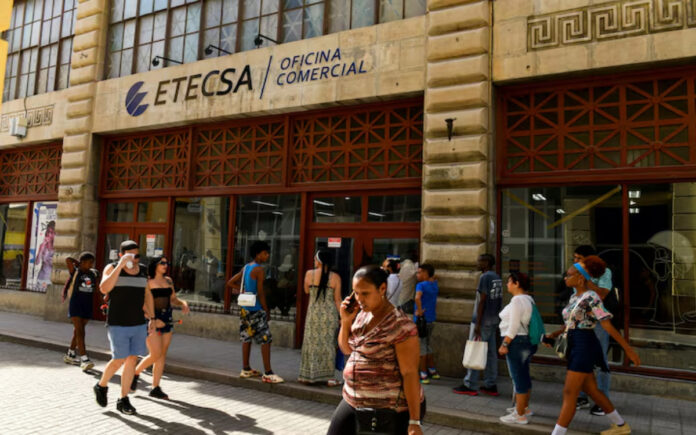Havana: Cuban university students are intensifying demands for deeper concessions from the government, following widespread outrage over recent mobile internet rate hikes. Despite a partial rollback announced earlier this week, many students argue the measures fall short of what is needed to support their education and daily needs.
At the University of Havana, the country’s largest and most prominent academic institution, students from at least one department have urged classmates to boycott classes in protest. The move reflects a growing wave of discontent sweeping across the island, where the state-run telecommunications provider, Etecsa, recently slashed the subsidized internet data allowance to six gigabytes for university students—far below Cuba’s average monthly usage of ten gigabytes.
Several students gathered outside the university on Wednesday confirmed to Reuters that the boycott calls were circulating and the mood on campus remained tense, with many feeling their grievances remain unaddressed.
Haydee Fernandez, a 28-year-old student, voiced concern over the affordability and educational implications of the price hikes.
“I can’t study if I don’t have up-to-date (online) information,” she said. “If it’s necessary to stop classes, they should be stopped until there’s a logical response to these needs.”
While classes appeared to proceed mostly as usual on Wednesday, students said discontent continues to simmer.
Hany Blanco, a 19-year-old freshman, said she would still attend lectures for now, but believes urgent action is needed.
“The old prices were accessible but now it’s gotten very difficult,” she said.
Also Read | CBO Projects Economic Slowdown from Trump Tariffs, Despite Deficit Reduction
Last Friday, Etecsa implemented a cap on subsidized mobile data at 360 pesos—less than $1 on the informal exchange rate—for six gigabytes. However, users who require more data must now pay 3,360 pesos (roughly $9) for an additional three gigabytes. That price significantly exceeds the country’s minimum monthly wage of 2,100 pesos (approximately $6), making it a heavy burden for most Cubans.
The government has defended the rate hikes, citing the need to upgrade Cuba’s strained telecommunications infrastructure. However, the decision has inflamed public frustration, especially among the youth, at a time when inflation and economic hardship are already testing patience in the Communist-led nation.
Also Read | Tariffs No Match for K-Beauty’s Rise in American Market
The University of Havana issued a statement on Tuesday acknowledging the unrest but warned that it would not tolerate disruptions to academic operations.
Since the introduction of mobile internet in 2018, Cuba has seen a rapid rise in digital connectivity. The number of mobile internet users has surged to over 7.5 million, making access to affordable data increasingly vital for education, communication, and basic information.



